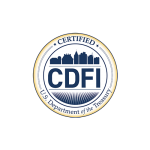
Are you self-employed? Take advantage of these deductions and benefits
Over the past few years, the tax laws have eased up for the self-employed. Keep in mind that tax laws are constantly changing and reviewing the most common deductions for self-employed individuals. Which is necessary to keep updated on any changes that may affect your tax payments. Below is a list of the most common deductions that you should be taking advantage of if you are self-employed. With these self-employed tax tips, get the most out of your deductions.
Retirement Plan Contributions Deduction
If you are self-employed or operate a small business, you can take a deduction for your self-employed retirement plan contributions. Contributions to simplified employee pension individual retirement accounts (SEP-IRAs), or a solo 401(k)s. For self-employed people, this can be a very important deduction.
Investing in any of these vehicles will reduce your tax bill now and help you earn tax-deferred investment gains for retirement. Check with your tax or financial advisor to see which plan will work best for your situation.
Rent Deduction
If you rent out an office space, you can deduct the amount that you pay for rent. You can also deduct amounts paid for any equipment that you rent. And if you have to pay a fee to cancel a business lease, that expense is also deductible.
However, you can’t deduct rent expenses on any property you own, even partially. Additionally, rent must be market rate and not leased to you by a family member.
Home Office Deduction
The home office deduction was one of the more scrutinized deductions, however with remote work becoming a norm inquiry into this deduction has eased. Any workspace that you use regularly and exclusively for your business, (whether you rent or own it), can be deducted as a home office expense.
You can also deduct the business percentage on your deductible mortgage interest, home depreciation, utilities, homeowners insurance, and repairs you pay for during the year.
If your home office occupies 15% of your home, 15% of your annual electricity bill becomes tax deductible. However, some of these deductions, such as mortgage interest and home depreciation, apply only to those who own their home office space.
Another way to calculate a home office deduction is by multiplying $5 for each square foot of your office space. You are only allowed to deduct a maximum of 300 square feet, so the most you’ll be able to deduct is $1,500.

Internet and Phone Bills Deduction
You can also deduct the business portion of your phone and internet expenses. Even if you claim the home office deduction or not.
Keep deductions related directly related to your business. For example, you can deduct the cost of hosting your website and any business-related subscriptions.
Health Insurance Premiums Deduction
If you are self-employed and pay for your health insurance premiums, and are not eligible to participate in your spouse’s plan, you can deduct all your health, dental, and qualified long-term care insurance premiums.
You can also deduct premiums you paid to provide coverage for your spouse, your dependents, and your children younger than 27 at year’s end, even if they aren’t dependents on your taxes.
Meals Deduction
A meal is a tax-deductible business expense when you are traveling for business, at a conference, or entertaining a client, although entertainment expenses are not typically tax deductible.
Keep meals reasonable to avoid attention. When you are traveling you can either deduct 50% of the meal’s actual cost (if you kept your receipts) or 50% of the standard meal allowance if you kept records of the time, place and business purpose of your travel but not your actual meal receipts.
Daily work meals are not typically tax deductible. However, the deduction has been amended and temporarily allows a 100% business expense deduction for meals as long as the expense is for food or beverages provided by a restaurant.
Travel Deduction
Best self-employed tax tips: Your travel expenses for business are 100% deductible. However, there are some guidelines and they include your business travel must extend longer than a regular workday. To qualify for a travel deduction, your stay must be at least one night away from your home. Deductible travel expenses include; the cost of transportation, plane fare, car rental, Uber fare, or public transport, lodging, and meals.
To claim a business deduction, make sure it was legitimate business activity such as finding new customers, meeting with clients or learning new skills directly related to your business.
Be sure to keep accurate records and receipts for your business travel expenses and activities. This deduction is focused on in an audit – document everything.
Vehicle Use Deduction
If you use your car for business, you can deduct the expenses for those drives are tax deductible.
Record the trip’s date, mileage, and purpose. Keep your claim to business only. You can calculate your deduction using either the standard mileage rate determined annually by the IRS or your actual expenses.
The standard mileage rates are $0.655 per mile in 2023, up from $0.625 in 2022.27 Using the standard mileage rate is easiest, because it requires minimal record-keeping and calculation.
Interest Deduction
Interest on a business loan from a bank is a tax-deductible business expense. If a loan is used for both business and personal purposes, then only the business portion of the loan’s interest expense is deductible.
Credit card interest is not tax deductible when you incur the interest for personal purchases, but when the interest applies to business purchases, it is tax deductible.
Dues and Publications Deduction
The cost of specialized magazines, journals, and books directly related to your business is tax deductible as supplies and materials. Additionally, so are dues or fees for professional membership organizations.
Acceptable groups that the IRS allows deductions for are Chambers of Commerce, civic or public service organizations, professional organizations such as bar associations and medical associations, and trade associations.

Education Deduction
Any education expenses related to maintaining or improving your skills for your existing business can be deducted. However, the cost of classes to prepare for a new line of work is not.
Business Insurance Deduction
Insurance premiums directly related to your business including fire insurance, credit insurance, car insurance on a business vehicle, or business liability insurance are all deductible.
Office Supplies Deduction
You can deduct the cost of business supplies and materials that have been “consumed and used during the tax year.” This includes such mundane concerns as copy paper, postage, paper clips, and pens. The IRS also allows books, professional instruments, and equipment, as long as they are used within the year.
Final Thoughts
Utilizing self-employed tax tips, as a self-employed person, these are just some of the deductions you can take. Self-employed people often work long hours and have many extra demands on their time and energy. However, the time and energy spent on organizing and documenting all of your deductions will be worth the effort in the long run.





